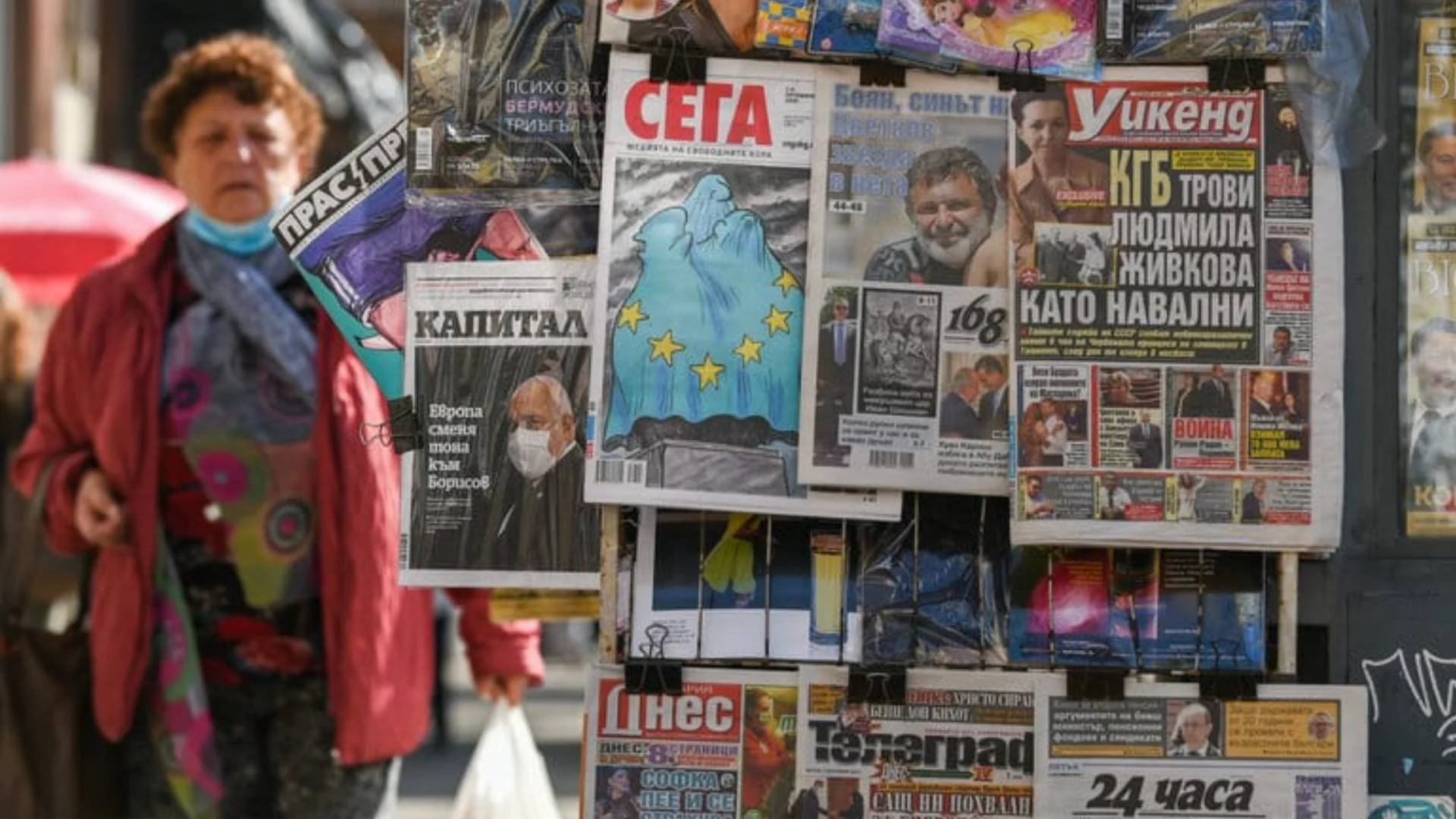The Balkans Are the EU’s Blind Spot in the Fight for Democracy
Independent media is Europe’s first line of defense in the information war — and its last priority in the Balkans.
That contradiction was hard to miss during this week’s hearings of the Special Committee on the European Democracy Shield. The threats to European democracy are no longer just external, but embedded in the platforms that shape public opinion, the algorithms that reward outrage, and the business models that marginalize public-interest journalism.
Generative AI, for instance, is no longer just a content threat but a tool that could infringe journalistic agency. As one speaker noted during the hearings, “we are inviting semi-autonomous actors into our newsrooms.” That may be a manageable tradeoff in strong, well-regulated media systems. But in fragile democracies, it risks accelerating a collapse of editorial autonomy before independent and resilient media have had the opportunity to develop.
The impact of these shifts in the digital landscape isn’t evenly distributed. In vulnerable media markets, they hit harder, faster, and with fewer tools to respond. And nowhere is that risk more acute — or more overlooked — than in the Balkans.
Across the region, media systems hollowed out by years of political capture and chronic underfunding are being pulled into a hybrid media reality. When generative content, algorithmic bias, and disinformation converge in unregulated spaces, the effects don’t stay local. They shape public narratives, fuel discontent, and distort the enlargement debate itself, in ways that have the potential to undermine security across the continent.
If Brussels is serious about defending democracy, it must stop treating media freedom in the Balkans as a peripheral concern and recognize it as a frontline security challenge.
Candidate Countries, Captured Media
In theory, countries like Serbia, Montenegro, North Macedonia, Albania, and Bosnia and Herzegovina are on a path toward EU membership. In practice, many are drifting into a kind of pre-accession purgatory: adopting reforms on paper but sliding backward in substance.
Serbia exemplifies this regression. Although it maintains several growing partnerships with EU member states, the government continues to maintain a tight grip on national media narratives while presenting itself to Brussels or Washington as a regional stabilizer. Republika Srpska, part of Bosnia and Herzegovina, joined the accession pack of EU candidates despite recent re-criminalization of defamation and active attempts to introduce FARA-style “foreign agent” legislation. Meanwhile, Albania, with its ambitious plans to join the EU by 2027, struggles with opaque, concentrated, and largely unregulated media ownership. Across the region, journalists face harassment, intimidation, and, in some cases, physical violence, exposing the gap between official EU progress and the deteriorating realities on the ground.
Brussels is not unaware of these challenges. However, current tools—from rule of law reports to fragmented funding initiatives—often fall short of addressing the scale and immediacy of needs on the ground. Meanwhile, U.S. disengagement from media development in the region has left a vacuum. If the EU doesn't step in, it won't just miss a strategic opportunity—it will cede the space to actors who understand the stakes all too well.
The Balkans as a Disinformation Launchpad
The Balkans have become, in the words of one speaker at the hearings, "information battlefields." Moscow has long treated the region as fertile ground for anti-Western narratives, while Beijing employs economic leverage and soft-power campaigns to portray autocracy as a more stable alternative. The EU's own voice, by contrast, is fading—along with public trust in its intentions.
Every manipulated story, every unchecked smear campaign originating in a captured media environment eventually infiltrates EU social media feeds, fringe party narratives, and political discourse. Serbia's "balancing act" between Brussels and Moscow isn't just foreign policy ambiguity—it's a media strategy that contaminates the information space across borders.
Europe is attempting to combat an algorithmic war with analogue instincts, and it's rapidly losing ground. The threats facing journalism today are coded into the infrastructure of how information is produced, ranked, and consumed. Generative AI accelerates the spread of synthetic content at scale. Platform algorithms reward emotional manipulation over editorial credibility. Engagement metrics, not accuracy, determine reach. In this ecosystem, facts don't just compete with fiction, they're routinely outranked by it.
For Balkan media, the risks are even more severe. These are markets where the institutional buffers that protect journalism and arguably the whole free flow of information in many EU states—independent regulators, pluralistic ownership, sustainable public broadcasters—are weak or non-existent. When credible journalism is buried under waves of algorithm-boosted propaganda or bot-amplified hate campaigns, there are few tools or institutional safeguards left to push back against further decline. The result isn't just information decay—it's information displacement, where hostile narratives dominate by design and hate is industrialized.
Why Balkan Media Matters to the EU
The EU’s media strategy still rests on the illusion that democratic resilience begins at home, and that candidate countries can be brought into alignment through slow, procedural reform. But that logic doesn’t hold in the current information landscape. Media collapse in the Balkans isn’t a future risk tied to enlargement — it’s a live vulnerability shaping Europe’s present.
This isn’t just a regional problem. It’s the leading edge of a larger European crisis, and treating it as a Balkan anomaly misses the point. What’s happening in Serbia, Bosnia and Herzegovina, or Albania isn’t separate from the EU’s media challenges. It’s an early warning signal.
Romania’s election rerun, forced by Russian interference and marred by heavy-handed online restrictions, made clear that even EU member states are on shaky ground. In Germany, disinformation networks and fake accounts flooded the digital space ahead of the February 2025 elections — not in some fringe corner, but at the heart of one of Europe’s biggest democracies. This is no longer confined to the periphery. It’s a continent-wide assault, escalating around elections and wherever political instability creates an opening.
This is why supporting media freedom in the Balkans is a strategic investment in Europe’s security. What happens in candidate countries reverberates far beyond their borders. Undervaluing the Balkan media ecosystem means surrendering ground in an information war the EU is already struggling to contain.
Our readers read next:







